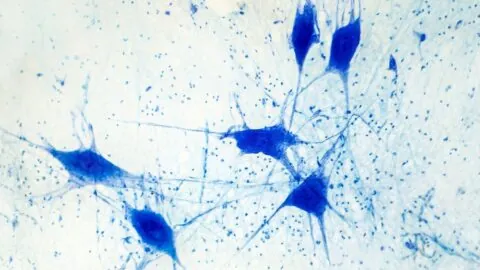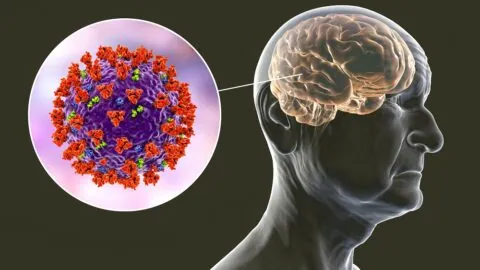February 22, 2024
A recent preprint paper from researchers at Sachi Bio has described how this company's technology can be used to alleviate brain inflammation in a mouse model. The problem of tau Along with the infamous amyloid beta, tau is well-known as a pathological factor in both Alzheimer's and regular aging [1]. The accumulation of tau with...
November 16, 2023
A new publication in Nature Aging has used organoids and model mice to discover that senolytics may be effective treatments for neurodegeneration caused by long COVID. A link between COVID-19 and cellular senescence Post-acute infection syndromes (PAISes) are caused by a variety of viral and bacterial infections. The PAIS specific to the COVID-causing SARS-CoV-2, "long...
July 28, 2023
In a mouse model of Huntington’s disease, scientists showed that injected young healthy brain cells can outcompete and eventually replace old, diseased ones. The results might be relevant for other neurodegenerative diseases [1]. When neurons’ helpers fail The non-neuronal cells in the brain are collectively known as glia. This category includes astrocytes, which nourish neurons...
July 27, 2023
A review article published in European Neuropsychopharmacology has described how and why psychedelic compounds may be useful in treating neurodegenerative diseases such as Alzheimer's. A question of neuroplasticity Neuroplasticity refers to the ability of neurons to remodel themselves, forming new connections in response to stimuli. Many psychedelic drugs are psychoplastogens, compounds that encourage neuroplasticity [1]....
January 12, 2023
Research published in Immunity & Ageing has shown that obesity has significant, aging-associated effects on behavior and immunity in the brains of mice. Known effects on humans and mice The researchers introduce this study by discussing human studies. It is well known that obesity is a risk factor for severe metabolic disorders, such as diabetes...
December 06, 2022
Scientists from Singapore have found that intermittent fasting alleviates damage incurred by chronic cerebral hypoperfusion, the impaired blood flow to the brain that is thought to be a cause of age-related dementia [1]. Why intermittent fasting? Back in the early days of geroscience, caloric restriction was the first intervention to substantially increase lifespan in lab...








